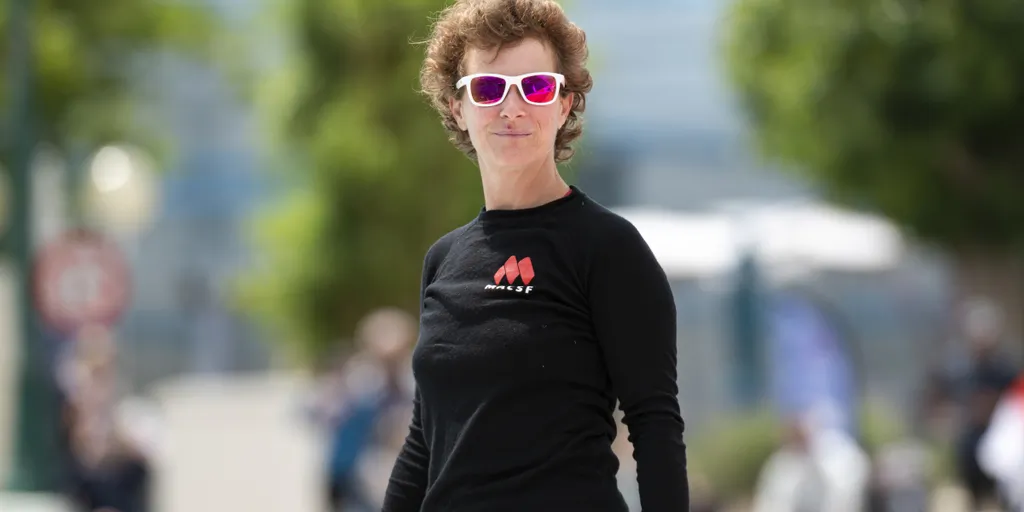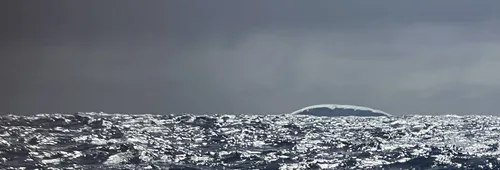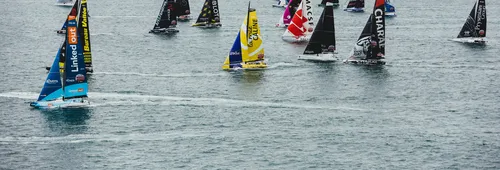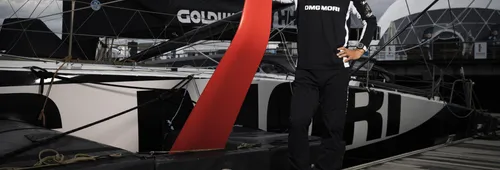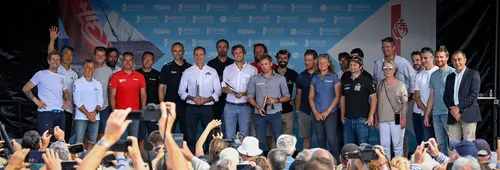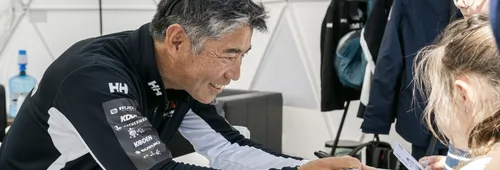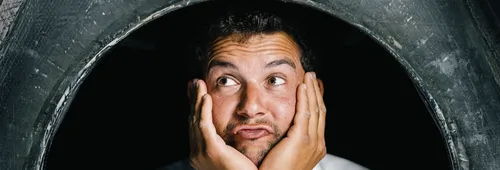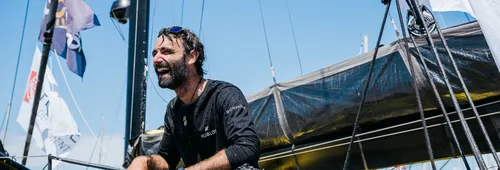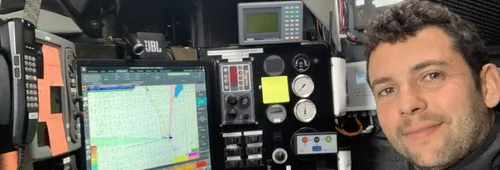Isabelle Joschke (MACSF) had already repaired her mainsail once with tape as she bashed into the headwinds holding her back from the shortened finish at the Iceland gate. When the sail failed again, she managed to make headway with a J-4, the tiniest of her headsails as the forecasted winds steadily increased.
“When I studied the weather it was 10-12 hours before I would arrive,” said Joschke, who was sailing slowly south with reefed sails today. “It was only 50 miles, it was nothing. But it was getting rougher and rougher.”
Joschke has been here before. Hanging on to the back of the peloton in the last Vendee Globe, a keel failure left her with the heartbreaking decision to abandon. The Franco-German’s emotional explanation around Cape Horn in a YouTube video was moving, a rare glimpse of an athlete at their lowest moment.
“After the whole adventure that was the Vendee Globe, many things changed in my mind,” said Joschke, who has been a rising star in solo sailing since winning the first leg of the Mini Transat in 2007. “I have nothing to teach and nothing to prove. I have much confidence in myself now. I know I will make the right decision. I know it.”
As race officers consulted and deliberated in teams to shorten and eventually finish the Vendee Arctique with sailor safety as the driving factor, the sailors left bashing towards the finish were on their own to manage the building seas and icy winds.
Three sailors including Joschke stopped racing within 70 miles of the finish, confounding observers who believed it was only a matter of time before they would cross the line off the rocky Iceland coast.
“This is not the Vendee Globe. I will be very close to the coast,” said Joschke, recalling the final moments before she retired as she was struggling to make miles to windward. “It was more dangerous than less dangerous. The coast was just not safe. I will risk all this just to finish the race? And finish anyway in last position.”
Manuel Cousin (Group SÉTIN) had retired much earlier in the race, but had to deal with the same decision making challenges as Joschke and the others. As he touched the sun-warmed, wooden docks of Port Olona this morning, he was settled and reflective about his retirement from the race.
“We can and we must give it our all in these other races,” said Cousin. “In the Vendee Globe, I wouldn’t have given up. I would have backed down. I would have waited a day or two and let the depression pass.”
For Joschke, she had only herself to trust in this decision, and her experience in the Vendee Globe pulled her through.
Joschke said she felt pressure to finish the race, with the line so tantalizingly close. “But I am on sea, I am on my boat and I have nothing special to prove to myself, I have proven enough and if I make the decision I know this is the right decision and nobody can judge that.”
Vendee Globe Veteran Samantha Davies was running weather routing for the Port La Foret IMOCA team of sailors and was keenly aware of the trap of thinking, with modern forecasting technology, that they know what the sailors are experiencing on the water.
“What Isabelle said was so true,” said Davies, referring to what Joschke said about the skipper’s judgement calls. “I’ve lived this one from the outside this time. You see the wind arrows on the tracker and you think you know what they got. But the wind is more dense there, it’s always feels stronger than predicted. The mountains are playing with the wind, accelerating. They are 2,500 meters high.”
Davies added that tracking doesn’t truly show sea state, and it certainly doesn’t show the technical issues the skippers are having. “There are a lot of things we don’t see,” she said. “We weren’t there doing it.”
Joschke said the public often assumes racers must race all the time. But that misses the element off seamanship in these ocean races.
“If you put yourself in danger just to finish the Vendee Arctique, for me, it’s almost stupid,” said Joschke. “The first thing is to stay in security. For me I’m a sailor. I’m a racer, but I’m a sailor…. Then if you think about being a sailor, there is no sense going there."
With three reefs in her main and a small jib, Joschke is comfortably catching up on. Her sleep and said she is as determined as ever in her Vendee Globe journey. The Vendee Arctique served to validate her judgement and her trust in her boat.
Joschke’s affirmation serves as sage advice to sailors and anyone facing hard decisions. “After that, when you went through all this, all the dangers, the cold, after that I want to say you don’t let some people who have no idea tell you what you have to do. It’s just that. Stay humble, but staying humble is not letting people decide for you if you go into a dangerous area or not.”
